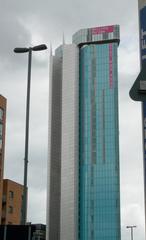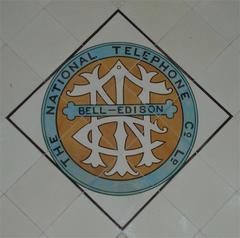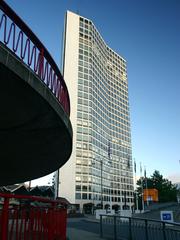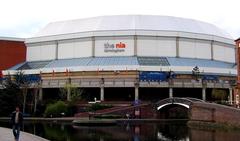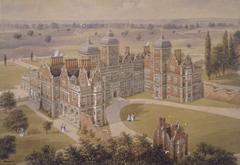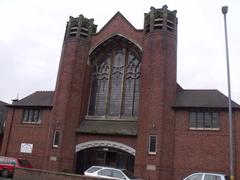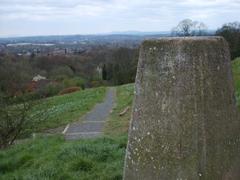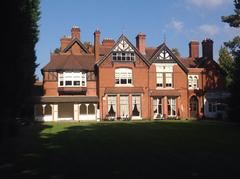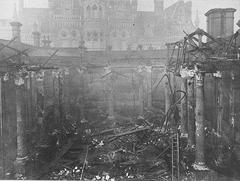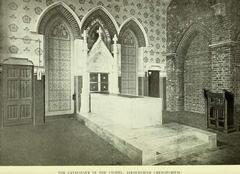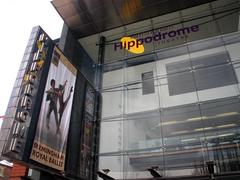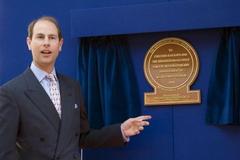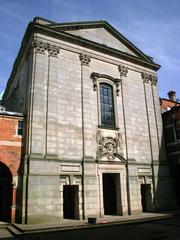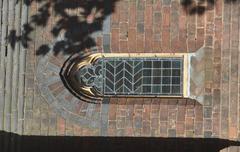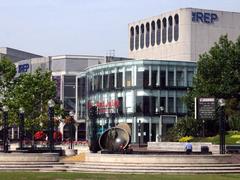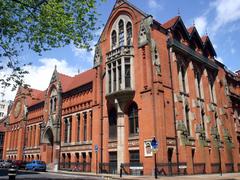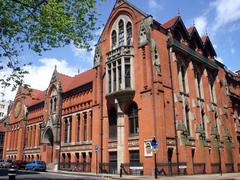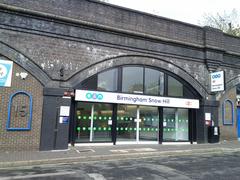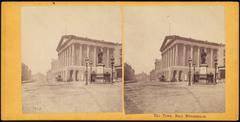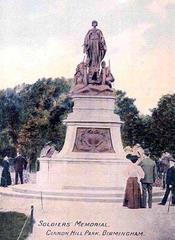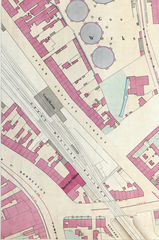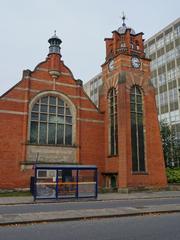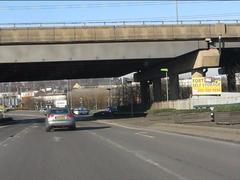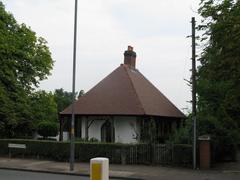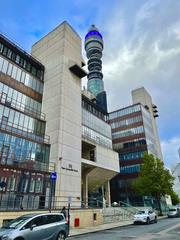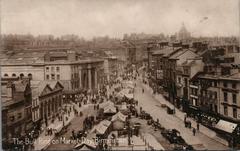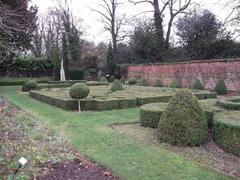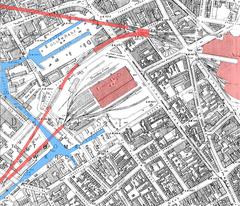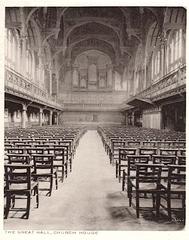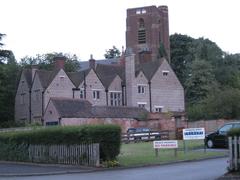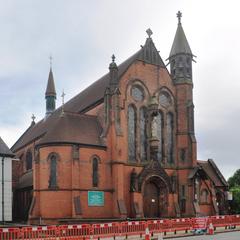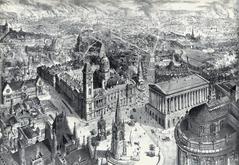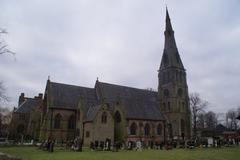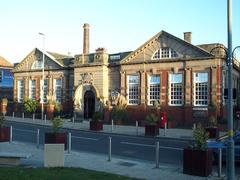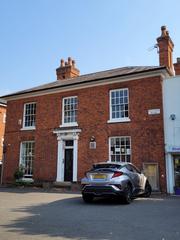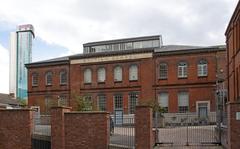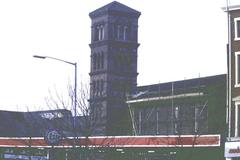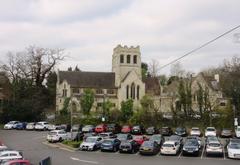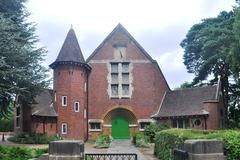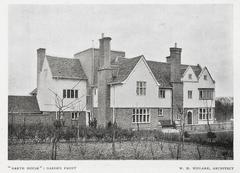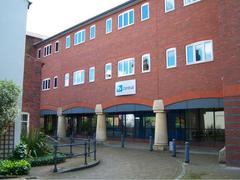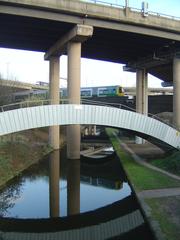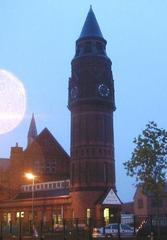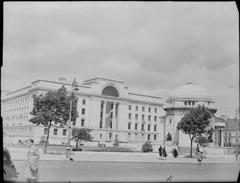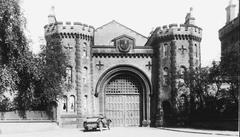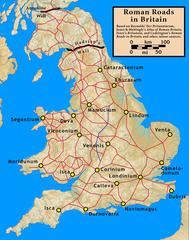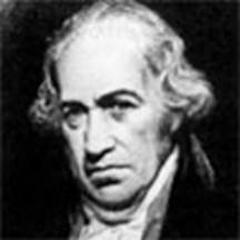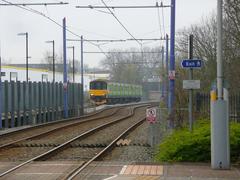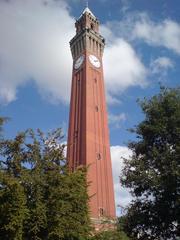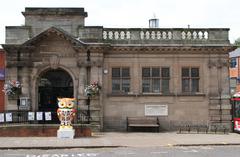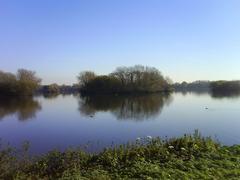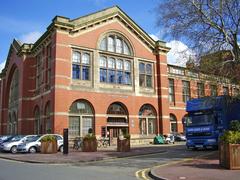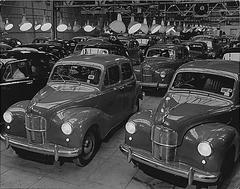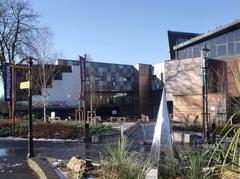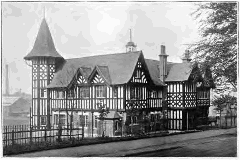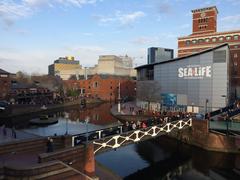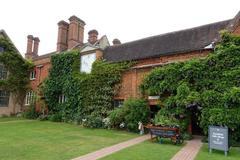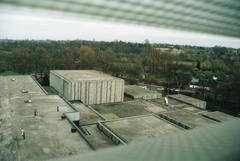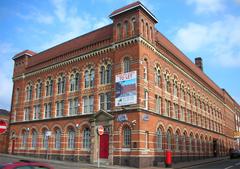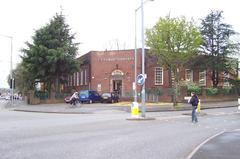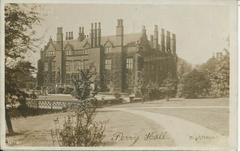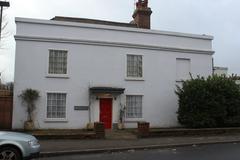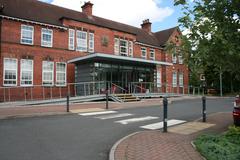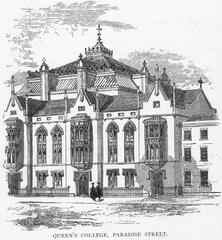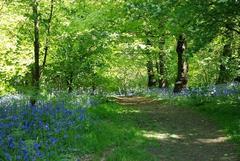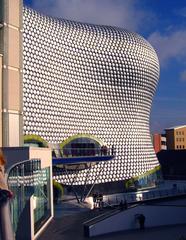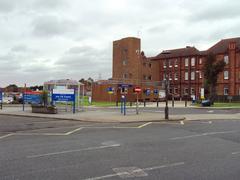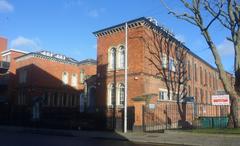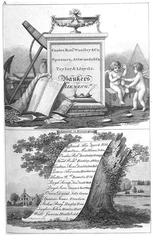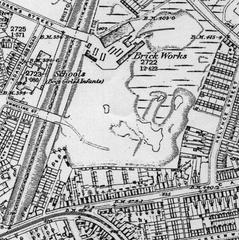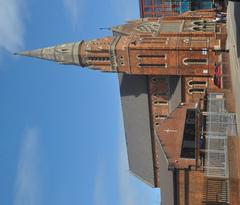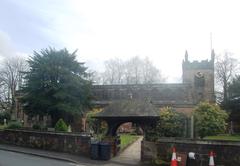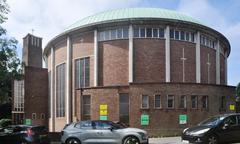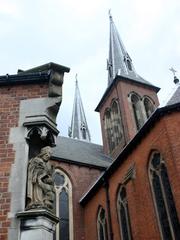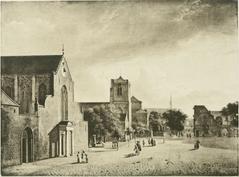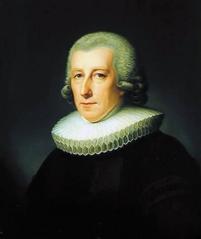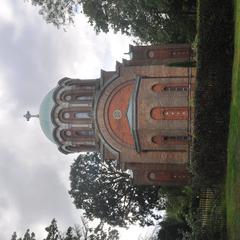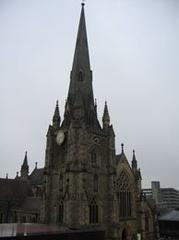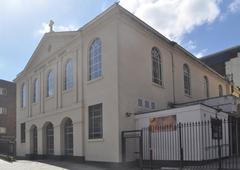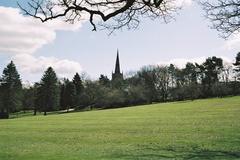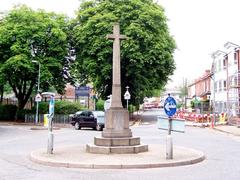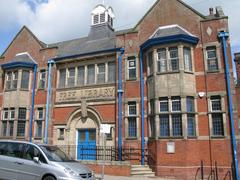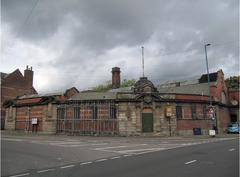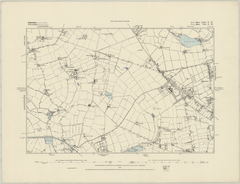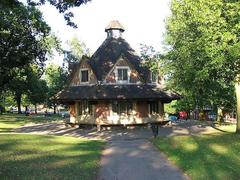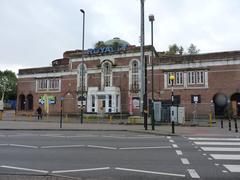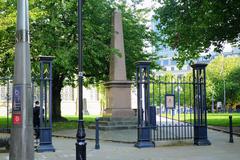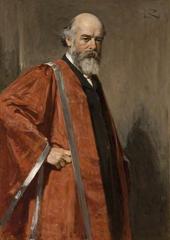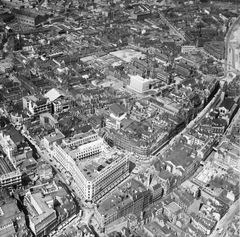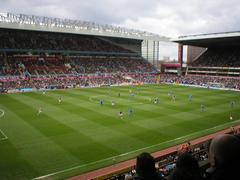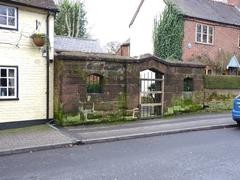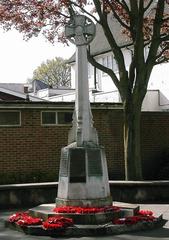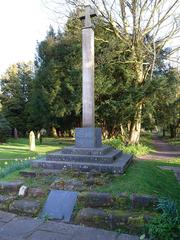Tyseley Energy From Waste Plant: Visiting Hours, Tickets, and Comprehensive Guide to Birmingham’s Historical Sites
Date: 03/07/2025
Introduction
The Tyseley Energy Recovery Facility (ERF) and Tyseley Energy Park (TEP) are at the forefront of Birmingham’s transformation from an industrial powerhouse to a leader in sustainability and clean energy. Established in 1997 to address the city’s landfill dependency, Tyseley ERF processes around 8,800 tonnes of non-recyclable municipal waste each week, generating renewable electricity to power approximately 63,000 homes and significantly contributing to Birmingham’s net zero ambitions. Nestled in the historically significant Tyseley district, renowned for its engineering legacy, the ERF is complemented by Tyseley Energy Park—a hub for clean energy innovation, research, and community engagement.
This guide provides a thorough overview of visiting Tyseley ERF and TEP, covering essential information on visiting hours, ticketing, accessibility, educational offerings, and nearby attractions. Whether you are an industrial heritage enthusiast, a student, or a professional interested in urban sustainability, this article will help you plan an inspiring and informative visit. For the most current details and bookings, please consult official sources such as the Birmingham City Council, Veolia Tyseley ERF, and Tyseley Energy Park.
Contents
- Introduction
- Origins and Development of Tyseley Energy Recovery Facility
- Technological Significance and Operational Impact
- Role in Birmingham’s Industrial Heritage
- Policy Context and Strategic Importance
- Community and Environmental Impact
- Visitor Information: Hours, Tickets & Tours
- Educational and Professional Visits
- Accessibility and Safety
- Nearby Attractions
- Tyseley Energy Park: Initiatives & Urban Regeneration
- Frequently Asked Questions
- Practical Visitor Tips
- Summary & Recommendations
- Sources
Origins and Development of Tyseley Energy Recovery Facility
Commissioned in 1997, the Tyseley ERF marked a pivotal shift in Birmingham’s approach to waste management. At a time when landfill was the primary method of disposal, growing concerns over environmental impact and limited landfill space prompted Birmingham City Council to embrace energy-from-waste (EfW) technology (Birmingham City Council). The ERF was constructed to process non-recyclable waste, converting it into electricity and reducing the city’s reliance on landfill.
The facility’s establishment was driven by both environmental necessity and technological opportunity. EfW technology had matured, offering a proven, cost-effective alternative for large cities seeking sustainable waste disposal and energy generation.
Technological Significance and Operational Impact
Tyseley ERF is a cornerstone of Birmingham’s waste infrastructure. It processes approximately 8,800 tonnes of municipal waste weekly—serving a population of about 1.2 million (Facilitate Magazine). Advanced combustion technology recovers energy from non-recyclable waste, producing over 184,000 MWh of electricity in 2021—enough to power about 63,000 homes (Birmingham City Council).
Crucially, the ERF helps Birmingham avoid around 0.2 tonnes of CO₂ emissions per tonne of waste processed, supporting the city’s net zero target for 2030 (Facilitate Magazine).
Role in Birmingham’s Industrial Heritage
The ERF continues a tradition of innovation in Tyseley, an area historically known for metalworking and manufacturing. Birmingham’s reputation as the “workshop of the world” is reflected in the ERF’s role as a modern engine of sustainable urban development. The facility’s location in this industrial heartland underscores the city’s ongoing evolution from heavy industry to clean technology.
Policy Context and Strategic Importance
Tyseley ERF’s operation is closely aligned with local and national policies on waste reduction, recycling, and renewable energy. In 2024, Birmingham City Council awarded Veolia a ten-year contract to manage the ERF and related infrastructure, ensuring stability while exploring future waste treatment solutions (Birmingham City Council). Ambitious targets include a 70% recycling rate at Household Recycling Centres and modernization of key facilities (Facilitate Magazine).
Community and Environmental Impact
Beyond energy generation, Tyseley ERF plays a vital role in local air quality improvement and community engagement. The facility is part of a network of recycling centres and waste stations, making sustainable waste disposal accessible to residents. Initiatives led by Veolia and Birmingham City Council underscore the importance of public participation in ecological transformation.
Visitor Information: Hours, Tickets & Tours
Guided Tours:
- Availability: Tours are offered to schools, universities, industry professionals, and community groups, by advance booking only.
- Hours: Typically available weekdays 10:00 AM–4:00 PM; special events may be held on weekends.
- Booking: Veolia Tyseley ERF website provides up-to-date schedules and booking forms.
- Tickets: Free, but must be reserved online due to limited capacity.
Accessibility:
- Step-free access, accessible restrooms, and staff support are available. Notify the booking team of any special requirements.
Travel:
- Well-served by public transport; on-site parking is available for group visits.
Photography:
- Allowed in designated areas. Restrictions apply in operational zones for safety reasons.
Educational and Professional Visits
Tyseley Energy Park (TEP) extends the educational mission of the ERF:
For Schools:
- STEM workshops, historic tours, and climate education.
- The restored 1863 School Room offers immersive learning about Birmingham’s industrial and energy history.
- Book your school visit here.
For Professionals and Academics:
- Guided tours of innovation hubs, research centres, and presentations on waste-to-energy processes.
- Insights into hydrogen refuelling, biomass power, and electric vehicle battery recycling.
Facilities:
- Flexible learning spaces, refreshments for organized groups, and accessible amenities.
Accessibility and Safety
Both the ERF and TEP are committed to accessibility and visitor safety. Wheelchair access and accessible restrooms are standard. All visitors receive safety briefings and required PPE. Notify staff of any specific needs when booking.
Nearby Attractions
Enhance your visit by exploring Birmingham’s rich industrial heritage:
- Black Country Living Museum: Open-air museum highlighting the region’s industrial history.
- Jewellery Quarter: Historic district renowned for metalworking and artisanal crafts.
- Birmingham Museum and Art Gallery: Broad collections, including industrial heritage.
Tyseley Energy Park: Initiatives & Urban Regeneration
TEP is a model for sustainable urban redevelopment, located on the historic Webster & Horsfall site (Power Technology). Key initiatives include:
- Integrated Clean Energy Solutions: CHP plant supplying renewable power to local users.
- Decarbonisation of Heat: Hosting the National Centre for the Decarbonisation of Heat (Tyseley Energy Park).
- Community Engagement: Collaborations with local groups for green spaces and sustainable transport (Acocks Green Neighbourhood Forum).
- Business Innovation: Climate Innovation Platform and Green Economy Series supporting entrepreneurship (Sustainability West Midlands).
Urban regeneration projects, such as the River Cole Community Common, enhance biodiversity and public recreation (Tyseley Energy Park).
Frequently Asked Questions (FAQ)
Q: Can I visit Tyseley ERF without booking?
A: No, all visits must be arranged in advance for safety reasons.
Q: What are the visiting hours?
A: Tours are typically available weekdays 10:00 AM–4:00 PM by appointment.
Q: Is the site accessible for people with disabilities?
A: Yes, both ERF and TEP are accessible. Please notify staff of any specific requirements when booking.
Q: Are tours available for the general public?
A: Public open days are rare; tours are tailored for educational and professional groups.
Q: Are there any fees?
A: Tours are generally free but require prior booking.
Practical Visitor Tips
- Book early to secure your preferred date.
- Check travel options and parking availability in advance.
- Wear comfortable clothing and closed-toe shoes; PPE will be provided.
- Follow safety guidelines and photography restrictions.
- Bring questions—guides are happy to share their expertise.
Summary & Recommendations
The Tyseley Energy Recovery Facility and Tyseley Energy Park stand as beacons of Birmingham’s sustainable future, blending advanced waste-to-energy technology with educational outreach and urban regeneration. Visitors gain first-hand insight into the challenges and innovations shaping modern cities. The sites’ focus on accessibility, community involvement, and integration with Birmingham’s rich industrial heritage make them exemplary destinations for learning and discovery.
To make the most of your visit, book tours via the Veolia Tyseley ERF or Tyseley Energy Park websites, check for updated hours, and consider combining your trip with nearby historic attractions. Stay informed and engaged through digital resources, social media, and the Audiala app.
Experience the convergence of heritage, innovation, and sustainability—plan your visit to Tyseley ERF and TEP, and discover how Birmingham is powering a cleaner tomorrow.
Sources and Further Reading
- Birmingham City Council - Preferred Bidder for New Ten-Year Transitional Waste Management Contract Confirmed
- Veolia Tyseley Energy Recovery Facility (ERF)
- Tyseley Energy - School Visit Enquiry
- Tyseley Energy Park
- Power Technology - Building Green Tech in Birmingham: Tyseley Energy Park
- Tyseley Energy Park - £20 Million Awarded to UoB for National Centre for the Decarbonisation of Heat
- Acocks Green Neighbourhood Forum - Tyseley Energy Park Local Improvements: Share Your Views
- Tyseley Energy Park - The Green Team: Driving Sustainability
- Sustainability West Midlands - The Green Economy Series
